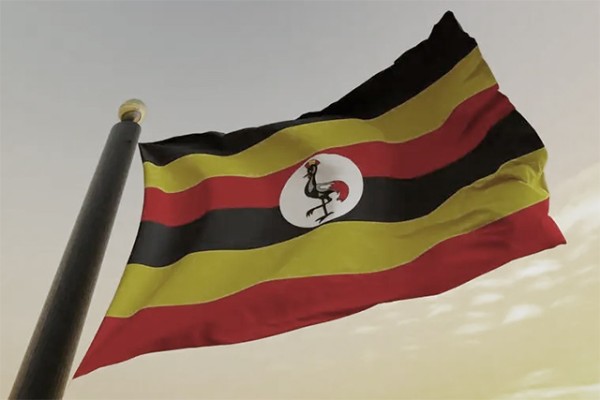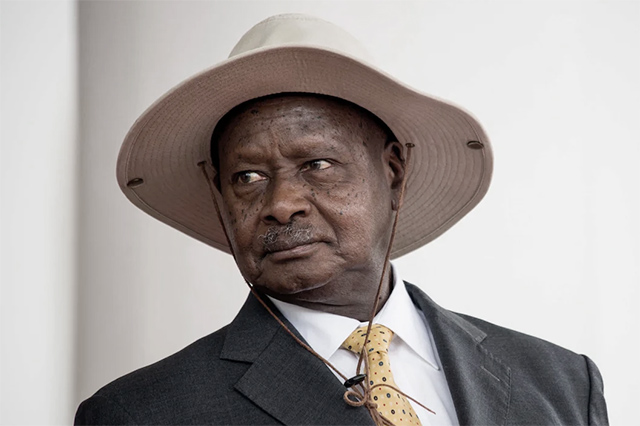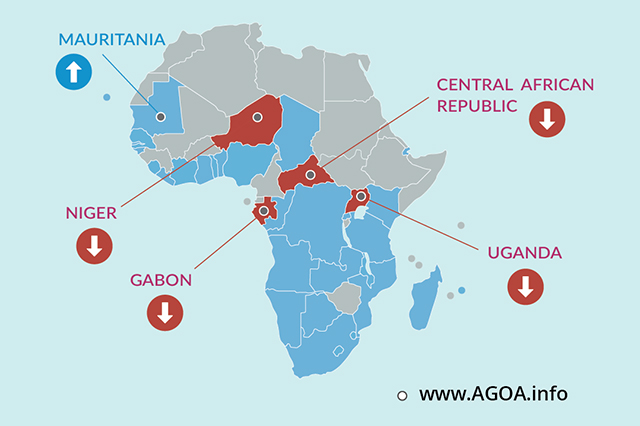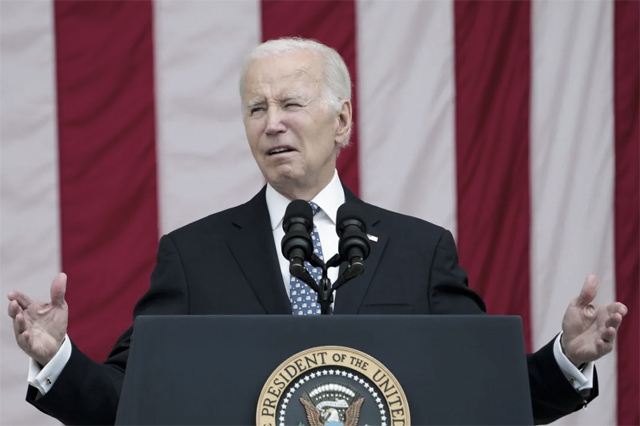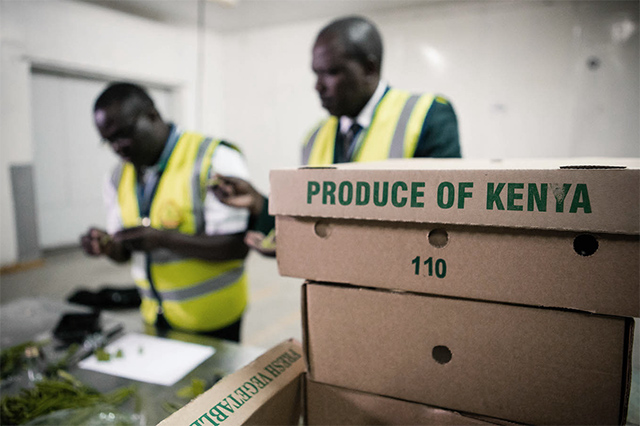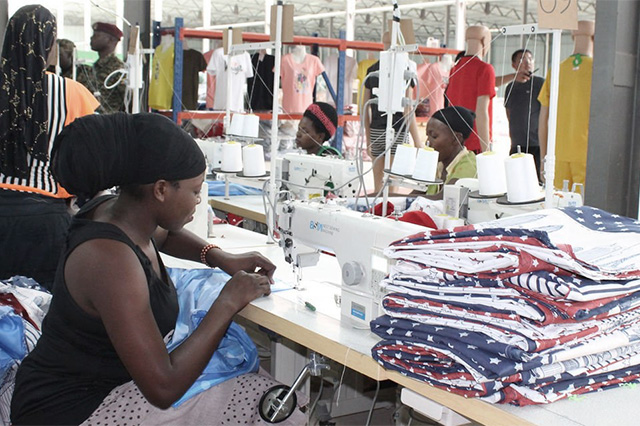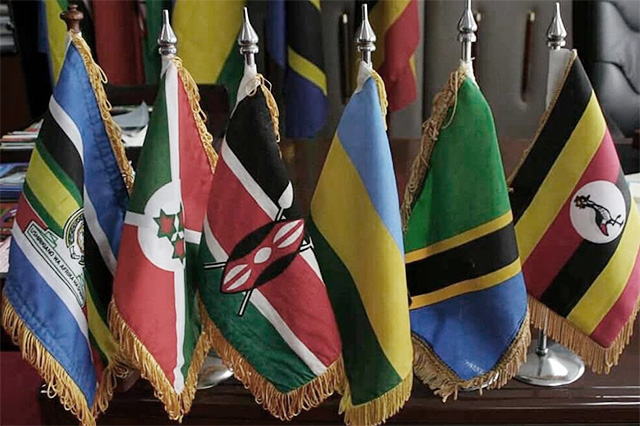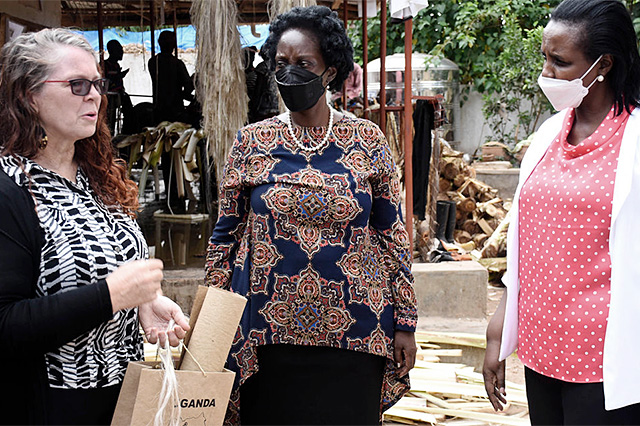Uganda's AGOA suspension
Uganda's recent suspension from the preferential trade arrangement known as the African Growth Opportunity Act (AGOA) by the United States has undoubtedly posed a challenge, potentially rendering the the East African country's products less competitive in the U.S market.
However, amid this storm, the resilience and quality of Ugandan products could serve as a sturdy anchor, allowing the East African nation to weather the adverse effects of this decision, according to trade experts The Independent has talked to.
On January 01, President Joe Biden's administration struck Uganda off the list of sub-Saharan African countries that can benefit from AGOA on a claim of President Yoweri Museveni's government "gross violations of internationally recognized human rights"
Biden said in an executive order dated December 29, 2023 that he had "determined" Uganda alongside three other countries-Central African Republic, Gabon and Niger- no longer meet the requirements necessary to allow them to continue benefiting from the AGOA trade deal.
"Accordingly, I have decided to terminate the designations of the Central African Republic, Gabon, Niger, and Uganda as beneficiary sub-Saharan African countries for purposes of section 506A of the Trade Act, effective January 1, 2024."
The decision came barely three months after President Biden wrote to the Speaker of the U.S Congress last October expressing his intention to remove the four countries from the list of AGOA beneficiaries over human rights abuses. Analysts in Uganda linked the country's suspension from the trade deal to the recent enactment of a harsh Anti Homosexuality Act.
"Despite intensive engagement between the United States and the Central African Republic, Gabon, Niger, and Uganda, these countries have failed to address United States' concerns about their non-compliance with the AGOA eligibility criteria," he said.
Other countries already out of the AGOA affirmative programme include; South Sudan, Somalia and Burundi in the East African Community bloc as well as Ethiopia, Guinea, Mali, Gabon, Cameroon, Burkina Faso, The Gambia, Sudan and Zimbabwe. Mauritania was reinstated the same day Uganda was evicted from the deal.
However, President Museveni in a televised address on Jan.09 scoffed at the US administration saying such trade restrictions and pressures "have no meaning because Uganda is a country of wealth creators."
"Those putting pressure on us are just wasting time," Museveni said. He said his government's solutions to foreign pressure include; fighting corruption and concentrating on regional integration so that Uganda "only trades with countries that 'respect us."
Lindsey Spector, the Spokesperson of the U.S. Mission in Uganda told The Independent on Jan.11 in an email that, "AGOA stipulates that, to be eligible, a country, among other things, must "not engage in gross violations of internationally recognized human rights."
"U.S. law requires the President to monitor and annually determine if an AGOA beneficiary country should continue to be eligible, and if a country that currently is not a beneficiary, should be designated as a beneficiary," Spector said.
"Uganda was deemed ineligible after extensive communication with the government of Uganda over several years regarding deficiencies in meeting agreed-upon standards of democracy and human rights."
AGOA boon
Since the enactment of the AGOA legislation in 2000 to permit several African countries to export more than 1800 products to the U.S. market duty-free, Uganda has been a beneficiary of the affirmative programme albeit with very low export volumes.
Uganda has over the years exported diverse products ranging from, fish, footwear and leather products, dried fruits, banana products, tea, coffee, crafts, Shea butter products, apparel, Cow horn products, fruits and vegetables, Nile Perch, vanilla, chocolate, and flower cuttings.
Latest statistics from the U.S. Department of Commerce show Uganda's trade with the U.S. is far way smaller compared with its neighbours Kenya and Tanzania. For example, in the 12 months ending June 2023, Kenya's exports under AGOA amounted to US$ 268 million (47% of total exports to the U.S) while Tanzania's AGOA exports amounted to US$47 million worth of commodities (40% of its total exports to the U.S). In the same period under review, Uganda's exports to the U.S. under AGOA amounted to US$ 8.2 million, just about 11.5% of its total exports to the U.S.
Dip in export volumes and value
Interestingly, trade analysts have told The Independent that while the US decision could have a negative impact on the volume of its exports by rendering them slightly expensive compared to Uganda's peers, the East African nation will survive the AGOA suspension.
Dr. Isaac Shinyekwa, a Senior Research Fellow at the Economic Policy Research Centre (EPRC) at Makerere University told The Independent on Jan.11 that Uganda's suspension from AGOA does not mean that local exporters cannot send their products to the American market.
"What it means is that (now) Ugandan products have lost preferential treatment and are now less competitive," he told The Independent.
"For example, under AGOA, a Ugandan product did not attract a particular duty once it got onto the American market. Now, without AGOA, these products will be subjected to that duty which previously the Ugandan exporters did not have to pay, meaning Ugandan goods are now less competitive."
Dr. Shinyekwa, however, insisted that Uganda will overcome the AGOA suspension just like it did with the recent Rwandan border closure. He said the local entrepreneurs will reinvent themselves but they will do so at a higher price.
Meg Jaquay, the Chairperson of the AGOA Exporters Association of Uganda, says Ugandan entrepreneurs are determined to maintain their presence in the American market with or without the AGOA suspension.
Jaquay who also doubles as the President of the American Chamber of Commerce in Uganda told The Independent that unless the perception of not being under AGOA is a deterrent to American buyers, the impact of the AGOA suspension shall be "limited financially."
She points to the performance of Uganda's entrepreneurs in the U.S market during the COVID-19 pandemic for her optimism. She told The Independent that even during the pandemic, Uganda showed the largest growth of exports to the USA when compared to her East African neighbours. "That means the interest in Ugandan products is growing," she said.
"If your business must have the USA market as one of its sales channels, then it's all up to us as business owners to find the buyers that will buy our fantastic products, pay the price for them, and keep coming back for more despite not being under AGOA."
Jaquay told The Independent that it is not always about a tax advantage and luckily many of the products that Ugandan entrepreneurs export to the US still fall under what is called the "GSP" or the generalized system of preferences which is the import duty code from 1974 which still allows at least 5000 items to be imported into the US duty-free. She says, with AGOA, another 1800 products were added to that list making it more viable for other sectors to enter duty-free.
"(This means that) those sectors are now going to have to look to see how these minimal import duties may affect their bottom line. For some of them, they may just be able to absorb it until we are reintroduced into AGOA. It always comes back to the fact that, when you're in business, your ideal is with a client who you target," she says.
"If our Ugandan exporters' ideal client is a US business or a US consumer, then the business here in Uganda is just going to have to work a little bit smarter to figure out how to stay at the negotiating table without the umbrella of AGOA in their back pocket. It's not impossible, it's just something that we just now have to work just a little bit smarter to gain the trust of those US buyers."
"What we don't want to have to happen, and have seen it over the last few weeks since this was announced, is that everyone thinks Ugandan exporters will stop exporting to the USA. That is most definitely not the case," she told The Independent, adding that: "Every single exporter that I have spoken to has a shipment going to the USA this month. The consumers still love and want our products, and that is what we as business owners have to focus on."
AGOA's mixed results for Africa
Over the last two decades, AGOA has certainly helped boost African exports to the US, but the trade data raises questions about why some countries are better able to capitalize on the preferential trade rules. As of May 2023, 35 sub-Saharan African countries stood to benefit from the American trade programme, but experts say AGOA utilization rates and results have varied widely.
For instance, Kenya and Lesotho have had some of the highest AGOA utilization rates: 88% of Kenyan exports and 99% of Lesotho's exports to the U.S. market qualified for zero-tariff treatment with apparel products dominating for both countries' exports to the U.S.
But analysts at the U.S.based Brookings Institute say almost half of all beneficiary countries had a utilization rate of 2% or lower during the same period, meaning 98% of U.S imports from those countries were subject to U.S tariffs.
These discrepancies in utilization rates, the analysts pointed out, have tended to hinder AGOA's potential to "tip the scales when it comes to economic development, growth of commercial opportunities and job creation for many beneficiary African countries."
Why some countries are not benefiting from AGOA
Several factors could explain variations in AGOA utilization including differences in business environment, competing interests, lack of credit, lack of internet access, insufficient capacity, lack of government investment, and production costs and bottlenecks.
In order to go around some of those challenges, however, some countries have become creative by developing so-called "utilization strategies" which have in turn helped them register good AGOA export figures.
For example, the Brookings Institute notes, as of 2022, 18 of the 39 beneficiary countries had developed a strategy to utilize the AGOA programme. And 14 of the 16 countries that had published strategies in 2021 were able to increase their non-crude oil exports. Many countries that adopted a national AGOA strategy -such as Mali, Mozambique, Togo, and Zambia-experienced particular success and saw their exports to the U.S. rise by over 90% during this period.
One example is Ethiopia. Just before U.S. sanctions were slapped on it, Ethiopia had boosted its AGOA-eligible exports after developing a utilization strategy that identified sector-specific constraints and formulated strategies to address them.
This strategy is said to have led to the creation of a one-stop technical and information hub to assist the five priority product areas the Ethiopian government identified in the country's AGOA utilization strategy-textiles and garments, leather and leather products, horticulture, handicrafts and agro-processing.
Exactly one year after the hub opened, Ethiopia increased its exports to the U.S by over 50%-much more than the total increase of exports from AGOA-eligible countries to the U.S during the same period from 2015-2016 (19% on average).
Similarly, in 2017, Botswana developed an AGOA utilization strategy that identified specific barriers to exports, and established evaluation criteria and an institutional structure to track key metrics of specific priorities. Four years later, Botswana held more stakeholder meetings with civil servants in various ministries, private sector associations, individual firms, women's groups and non-governmental and semi-governmental organizations to gather input on new areas of concern in the economy resulting in a revised strategy.
"Botswana's strategy of continuously adjusting to changing circumstances may offer an important example for other countries in Africa on how to reduce policy conflict and ambiguity to successfully bridge the gap between policy formulation and implementation," said Landry Signé, Senior Fellow, Global Economy and Development at the Africa Growth Initiative.
According to Signé, a review of trade data suggests that creating AGOA strategies is positively associated with increasing AGOA utilization rates. Eswatini, Ghana, Lesotho, Madagascar, Malawi, Mali, Mauritius, Mozambique, Namibia, Rwanda, Senegal, Sierra Leone, Tanzania, Togo and Zambia are the other countries which have since managed to come up with AGOA utilization strategies and they have seen their AGOA exports rise from 2% to more than 3000%.
For instance, Kenya which published a utilization strategy in 2012, saw its exports to the United States under AGOA subsequently doubled between 2012 and 2020, thanks mainly to large exports of apparel products.
Madagascar published its utilization strategy in 2015 and its exports to the U.S. under AGOA (apparel, chocolate and basket weaving materials) shot up to 390% from 2015 to 2020. Similarly, Mali's exports to the U.S. under AGOA (black wheat, travel goods and musical instruments) rose by 397% between 2016 and 2018 after the government published a utilization strategy in 2016.
The biggest leap in export receipts was registered by Zambia whose exports to the U.S. under AGOA (semi-precious stones, pearls and copper) skyrocketed to 3000% by 2019 following the southern African country's publication of its utilization strategy in 2016.
Uganda's AGOA performance explained
Trade analysts in Uganda say Uganda' performance under AGOA has not been as impressive. Some say, the government has not been as intentional as its competitors on the continent. Some have blamed the fact that Uganda has failed to come up with its own AGOA utilization strategy.
Dr. Shinyekwa at EPRC partly agrees. "Quite often, when we (Uganda) sign agreements, we come back and rest on our laurels but we forget that (signing an agreement) is just the beginning of the process," Dr Shinyekwa told The Independent.
"The agreement gives you market access but it is also important to get market presence-that is where Uganda is weak. To access that market, there are a set of conditions that we have to meet."
"Whereas countries like Kenya sent their trade experts to the U.S. and studied the market for months and came back with an understanding of how Kenya would tap into the market under AGOA, it is not clear how Uganda has gone about its strategy." Shinyekwa told The Independent that market presence often comes with a bit of effort.
The current AGOA deal is set to expire next year in December, but there are murmurs in Washington D.C that an extension is under consideration. Spector, the Spokesperson of the U.S Mission in Uganda, told The Independent that Uganda could regain its AGOA eligibility through the annual review process if the Ugandan government takes significant steps to improve respect for human rights for all Ugandans.
So, if Uganda succeeds to regain its AGOA status, how should the government approach the trade deal with the U.S this time? Dr. Arthur Bainomugisha, the Executive Director at the Advocates Coalition for Development and Environment, a Kampala-based think tank, told The Independent that the Uganda government and its institutions and agencies need to execute better their respective mandates regarding the country's export strategy.
"There is need to streamline the coordination of the institutions and agencies. Instead of the overlapping mandates or competing mandates, it's better to pursue complementary roles instead of competition."
Dr. Bainomugisha says the AGOA opportunity needs to be knowledge-led this time. "W may need to cut out the politics and bring on board experts and professionals from the trade ministry and the Uganda Export Promotion Board to ensure that AGOA is continuously expert-led.
"Investing a little more in research; organizing our business community and supporting them (more) will be important," he says, adding that: "Uganda cannot afford to lose an opportunity to export to the U.S market of some 300 million people with great purchasing power."
For Jaquay of the Uganda AGOA Exporters Association, should Uganda get re-admitted into AGOA, the government policies would need to show that it still believes in the reasons why Uganda first entered into AGOA- benefit to Ugandans.
"We know that the President is focused on exports since he introduced PACEID (Presidential Advisory Committee on Exports and Industrial Development) in the last few years with the goal of US$ 6bn exports by 2028," she told The Independent. "Uganda needs to have great trade relations in every one of those major markets to meet that target."


